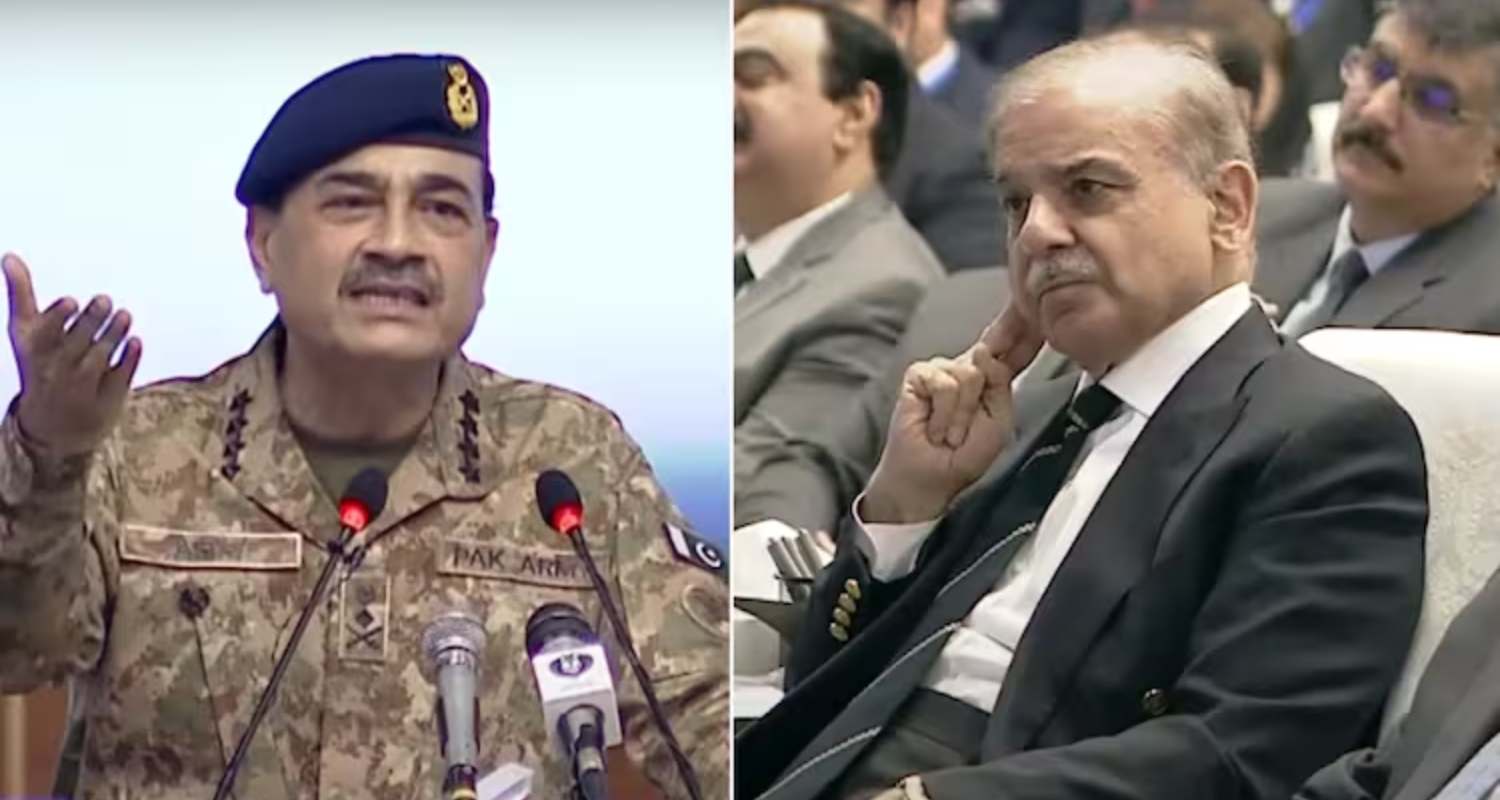Pakistan’s Army Chief, General Asim Munir, has reiterated the military establishment’s long-standing ideological stance by urging Pakistanis to educate future generations about the fundamental differences between Hindus and Muslims, which he claimed were central to the country’s creation.
Speaking at the Convention for Overseas Pakistanis in Islamabad, with Prime Minister Shahbaz Sharif in attendance, Munir invoked the Two-Nation Theory—the ideological basis that led to Pakistan’s formation in 1947—as the foundation of national identity.
During his speech, General Munir emphasised that Pakistan’s forefathers believed Muslims and Hindus were fundamentally different in every aspect of life.
“Our religion is different. Our customs are different. Our traditions are different. Our thoughts are different. Our ambitions are different,” he stated, adding that this belief formed the core of the Two-Nation Theory and justified the creation of a separate homeland for Muslims.

He called on Pakistani citizens to pass this message to their children, urging them never to forget the sacrifices made for the establishment of Pakistan. “Our forefathers made immense sacrifices, and we too have sacrificed a lot for the creation of this country. Please do not forget this story,” he said.
The Two-Nation Theory, strongly advocated by Pakistan’s founder Muhammad Ali Jinnah in the 1940s, proposed that Muslims and Hindus were distinct nations with irreconcilable differences, and therefore needed separate states. This ideological framework eventually led to the partition of British India and the creation of Pakistan as a Muslim-majority nation.
Also Read: Russia may lift its ban on Taliban
General Munir also highlighted Pakistan’s Islamic foundations, noting that the country was built on the Kalima—the Islamic declaration of faith. He referred to himself as a ‘Hafiz-e-Quran’ (one who has memorised the Quran), reinforcing his appeal to Pakistan’s religious identity.
While Pakistan was established as an Islamic Republic that promised to protect the rights of its minorities, including Hindus, the number of minorities has significantly declined over the decades. Munir’s emphasis on the Hindu-Muslim divide demonstrates the military’s continued reliance on this ideological narrative to shape Pakistan’s identity, especially in relation to India.
His speech came just days after India criticized Pakistan for raising the Kashmir issue during a United Nations debate on peacekeeping reforms. India responded sharply, calling on Pakistan to vacate territories it described as “illegally occupied.”
In the same address, Munir also issued a warning to Baloch insurgents, vowing a firm military response. He declared that “even ten generations of terrorists cannot harm Balochistan and Pakistan,” signaling an intensified crackdown on separatist elements in the restive province.
Also Read: Pakistan, Afghanistan resume JCC talks in Kabul



